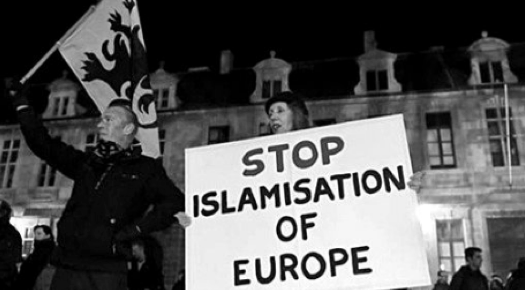
Last month, a groundbreaking report was presented at the European Union parliament in Brussels, claiming that it is, in fact, Muslims who are living in a dangerous climate. The purpose of the survey—the first of its kind—was to study the different trends of Muslim bias across all European states. For the year 2015, as many as 25 states were assessed, and the results of the survey were nothing short of appalling.
According to the report, anti-Muslim attacks increased in France by over 500 percent during the first half of 2015 and right after the Charlie Hebdo massacre, with 75 percent of all victims being women, who can be easily identified because of their headscarves. The report also reaffirmed the notion that many non-Muslim citizens of Europe feel Islam as well as Muslims do not have a place in their society. In this context, another survey by Bertelsmann Foundation found as much as 61 percent Germans believe neither Islam nor Muslims fit into the West; while 46 percent Britons feel surviving as a Muslim in the United Kingdom could be rather challenging.
As the authors of the survey concluded that the ongoing refugee crisis in the continent might have fueled strong resentments towards Muslims in recent times, they also noted that some amount of Muslim bias has always existed, especially in countries that happen to have a minority Muslim population—including Hungary and Lithuania.
The authors also suggested that hate speeches against Muslims and likening them to terrorists has, over time, emerged as a successful tool for political propaganda. That might be the reason why many non-Muslims believe Muslims, in general, are violent or criminal, even though official statistics may point towards another direction.
Apart from that, people also tend to overestimate the total number of Muslims in their countries. In this context, it is important to understand how several people in Europe continue to exclude fellow Muslim citizens from society, as they believe it is impossible to be both European and Muslim at the same time.
“Although the collected data in the EIR makes this very clear, European Muslims themselves have felt this for years years and do not need a study for confirmation. Some people, like myself, have experienced this hostile attitude very early in life. Already at the age of nine, one day after the attacks of September 11, my teacher asked me in front of the whole class why ‘these people’ did this—as if I knew Mohammad Ata personally. I did not know how to answer, but from that time on I was sure that my Afghan-Muslim identity would be a problem. Some years later, I witnessed how the right-wing extremist Freedom Party of Austria (FPÖ) looked for a useful scapegoat for almost every problem in the country and, of course, found Muslims to blame. The party's leader, Heinz Christian-Strache, became infamous for attending rallies with a cross in his hand, warning against the ‘Islamization of Europe’,” wrote Emran Feroz on Alternet.
Stressing how the fight against Muslim biases is anything but easy, the survey’s authors advised all European states to act in a less reproachful manner. They said all European states must consider any kind of hate speech as a chargeable offence before focusing on the many ways in which Muslim women are discriminated against in the job market.
Photo Credits: Free Malaysia Today
